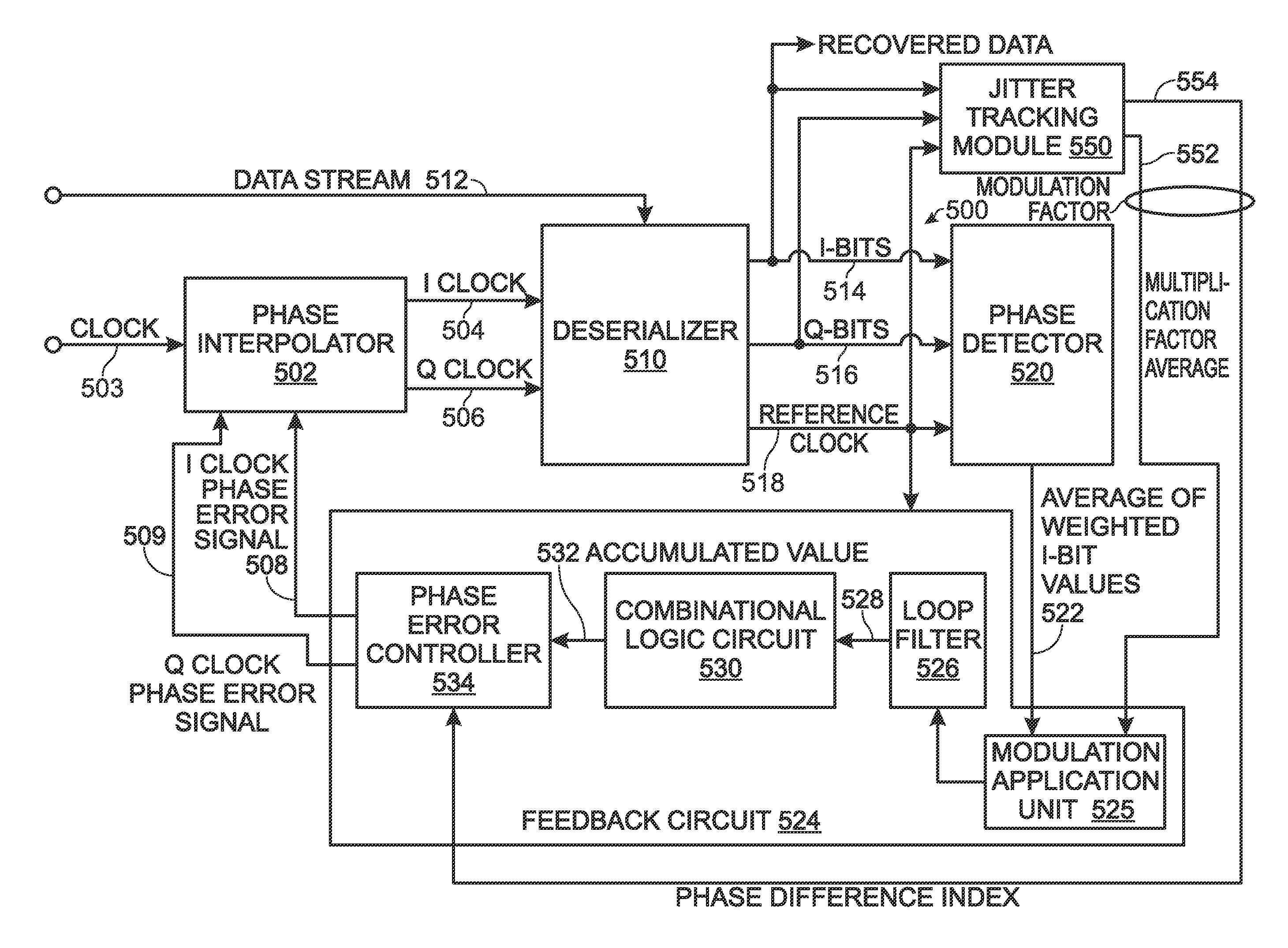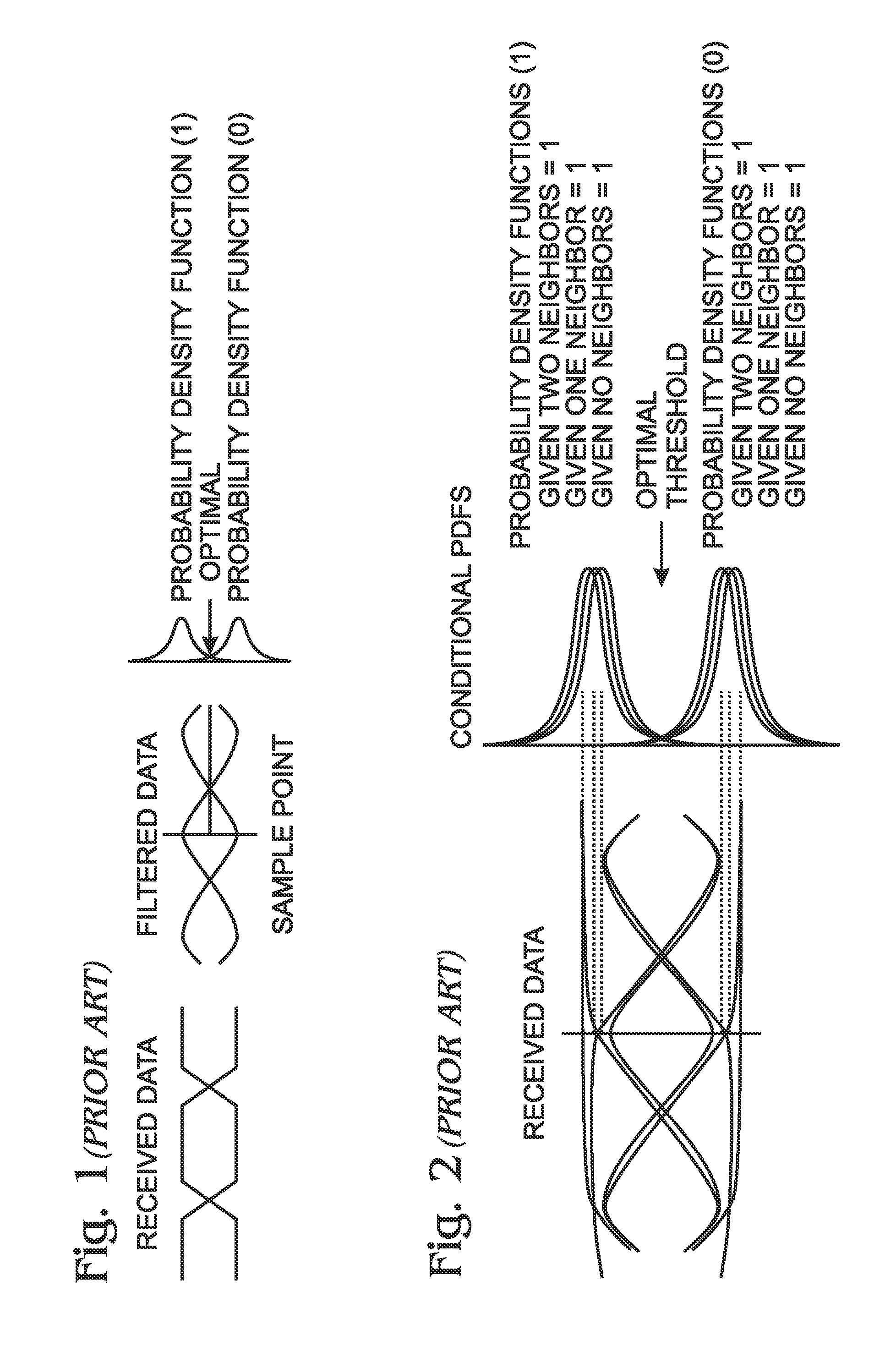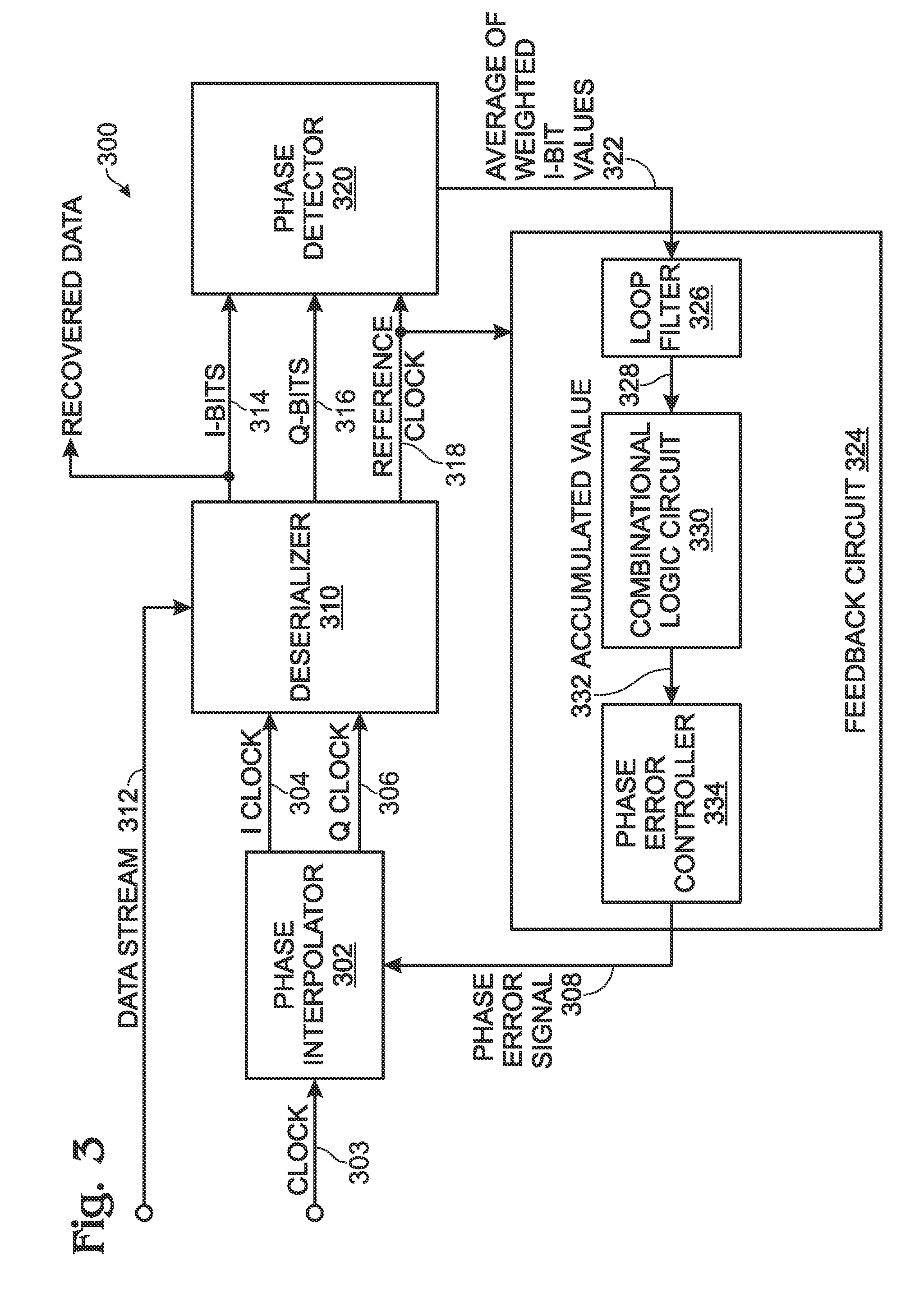ISI pattern-weighted early-late phase detector with function-controlled oscillation jitter tracking
a phase detector and function control technology, applied in the field of signal phase detection and tracking, can solve the problems of phase detectors that adjust the phase in the wrong direction, the above-mentioned problems are compounded, and the performance of the phase detector is moderately affected, so as to reduce the probability of detection, reduce the effect of isi, and mitigate the effects of inter-symbol interference in received data
- Summary
- Abstract
- Description
- Claims
- Application Information
AI Technical Summary
Benefits of technology
Problems solved by technology
Method used
Image
Examples
Embodiment Construction
[0039]FIG. 3 is a schematic block diagram of a clock and data recovery (CDR) device with a system for the guaranteed acquisition and tracking of a clock signal using an inter-symbol interference (ISI) pattern-weighted early-late phase detector. The system 300 comprises a phase interpolator 302 having an input on line 303 to accept a fixed frequency clock, an output on line 304 to supply an I clock signal, an output on line 306 to supply a Q clock signal having a fixed delay with respect to the I clock signal, and an input an input on line 308 to accept a digital phase error signal. The I clock has the same frequency as the clock on line 303, but the frequency of the I (and Q) clock varies in response to the phase error signal. In one aspect, the phase interpolator 302 generates a Q clock signal that is delayed 90 degrees in phase from the I clock signal. However, the system is not necessarily limited to this value. Neither is the system limited to the Q clock having a fixed phase re...
PUM
 Login to View More
Login to View More Abstract
Description
Claims
Application Information
 Login to View More
Login to View More - R&D
- Intellectual Property
- Life Sciences
- Materials
- Tech Scout
- Unparalleled Data Quality
- Higher Quality Content
- 60% Fewer Hallucinations
Browse by: Latest US Patents, China's latest patents, Technical Efficacy Thesaurus, Application Domain, Technology Topic, Popular Technical Reports.
© 2025 PatSnap. All rights reserved.Legal|Privacy policy|Modern Slavery Act Transparency Statement|Sitemap|About US| Contact US: help@patsnap.com



